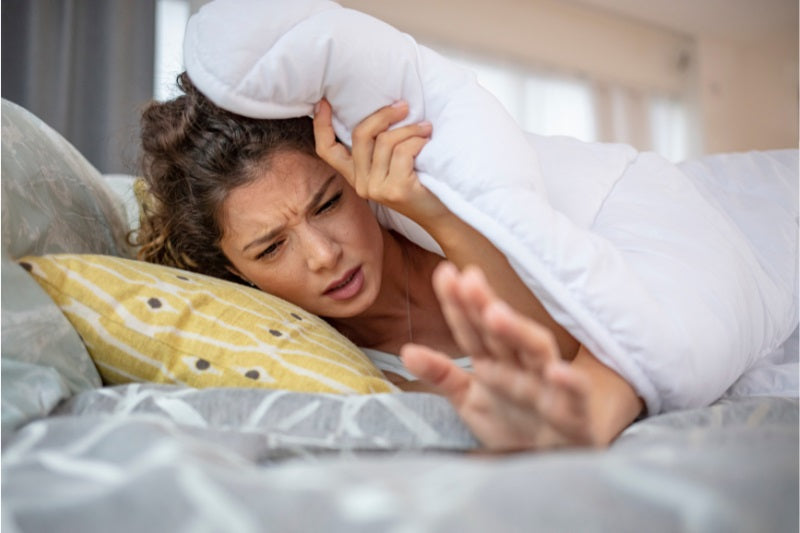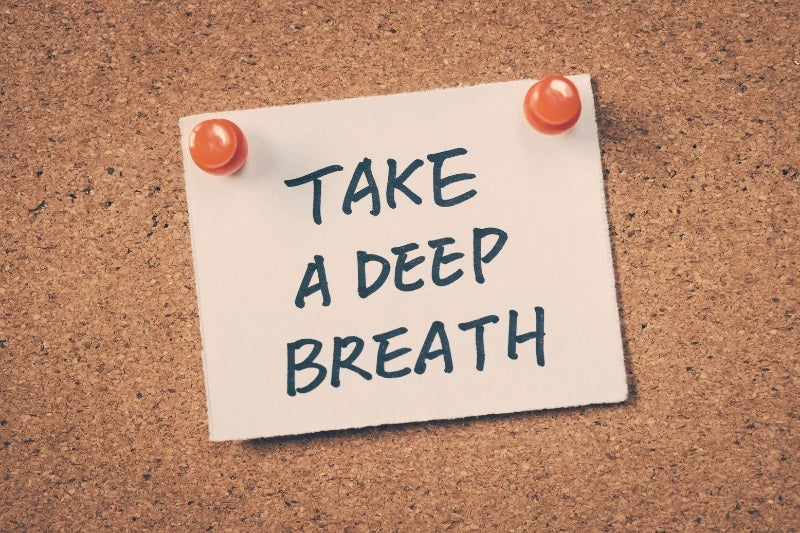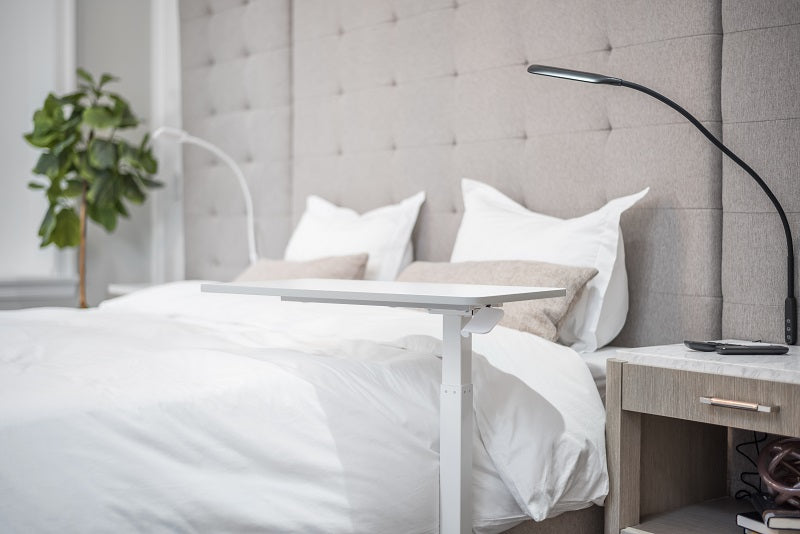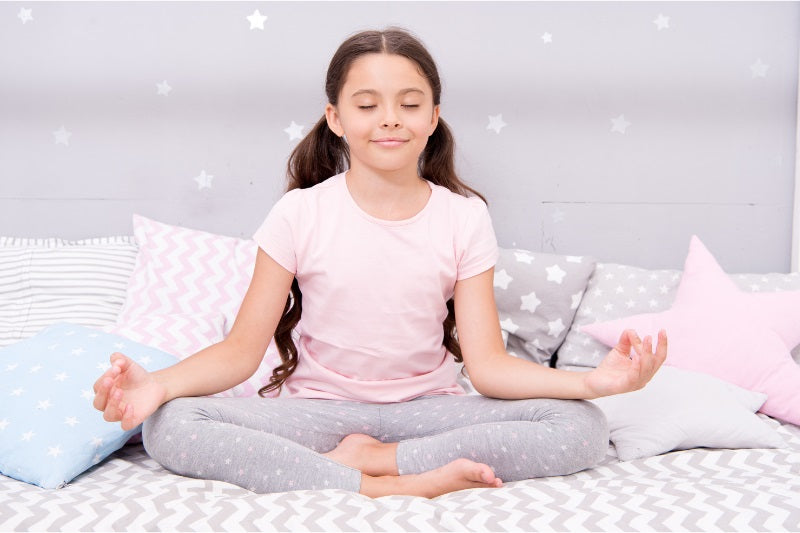Waking up in the middle of the night can be a frustrating and disruptive experience. It can affect your sleep quality, mood, and energy levels the next day. There are many possible reasons why you may wake up during the night, such as noise, light, temperature, stress, anxiety, nightmares, or the need to use the washroom.
Sometimes, waking up at night is unavoidable, but there are some strategies and techniques that can help you fall back asleep faster and easier. Let’s explore some of the most effective ways to fall asleep after waking up in this article, as well as some tips to prevent or reduce nighttime awakenings.

Why is it Important to Fall Back Asleep after Waking Up?
Sleep is essential for your physical and mental health. It helps your body and brain to repair, regenerate, and function properly. It also supports your immune system, memory, learning, mood, and emotional regulation. Getting enough sleep can lower your risk of developing chronic diseases, such as diabetes, heart disease, obesity, and depression. According to the National Sleep Foundation National Sleep Foundation advice, the adults should have seven to nine hours of sleep per night.
However, the quality of your sleep is also important, not just the quantity. If you wake up frequently or have trouble falling back asleep, you may not get enough deep and restorative sleep stages, such as slow-wave sleep and rapid eye movement (REM) sleep. These sleep stages are crucial for your physical and mental well-being, as they are involved in processes such as tissue repair, growth hormone release, memory consolidation, and dreaming.
Waking up at night can also disrupt your circadian rhythm, which is your internal biological clock that regulates your sleep-wake cycle and other bodily functions. A disrupted circadian rhythm can affect your hormone levels, body temperature, appetite, metabolism, and mood. Therefore, it is important to try to fall back asleep as soon as possible after waking up, and to maintain a regular and consistent sleep schedule.

How to Fall Back Asleep After Waking Up
If you wake up in the middle of the night and have trouble falling back asleep, the first thing you should do is to stay calm and relaxed. Getting anxious or frustrated about not sleeping can make it harder to fall asleep, as it can increase your stress hormones, heart rate, and blood pressure. Instead, you should try focusing on your breathing, and practicing relaxation techniques that can help you calm your mind and body. Here are some of them, which are the most effective ways to fall back asleep:
Deep breathing
Deep breath can activate your parasympathetic nervous system, which is responsible for relaxation and sleep. It can also lower your stress hormones and heart rate, decrease blood pressure and increase your oxygen intake. One of the most popular deep breathing techniques is the 4-7-8 method - inhaling through your nose for four seconds, holding your breath for seven seconds, and exhaling through your mouth, while counting to eight. Repeat this cycle for a few minutes, or until you feel sleepy.

Box breathing
Box breathing is a simple and effective breathing technique that can help you relax and fall asleep. It involves breathing in for four seconds, holding your breath on the count of four, breathing out for four seconds, and holding your breath again, counting to four. To make it easier for you, imagine drawing a square box with your breath as you follow this pattern. You can also adjust the length of each phase according to your comfort level, but make sure to keep them equal. Repeat this cycle for a few minutes, or until you start falling asleep.
Mindfulness meditation
The meditation can help you focus on the present moment, and pay attention to your sensations, thoughts, and emotions without judging them. It can also reduce your stress, anxiety, and negative thoughts, and enhance your mood, self-awareness, and emotional regulation. There are many types of mindfulness meditation, such as breath awareness, body scan, loving-kindness, and guided imagery. You can practice the meditation by yourself or use a recorded guidance from a smartphone app or a website.

Guided imagery
Guided imagery is a type of visualization that can help you create a peaceful and pleasant scene in your mind, such as a beach, a forest, or a garden. As you imagine the scene, try to use all your senses, such as sight, sound, smell, taste, and touch. This can help you distract your mind from any worries or negative thoughts and induce a relaxation response in your body.
Progressive muscle relaxation (PMR)
PMR is a technique that can help you release the tension and stress from your muscles and relax your whole body. It involves tensing and relaxing each muscle group in your body, starting from your feet and moving up to your head, or vice versa. After you tense a muscle, hold it for five seconds, then slowly release it. Notice the difference between the tension and the relaxation and breathe deeply as you do so. You can use a recorded guidance from a smartphone app or a website or follow your own instructions, whichever is more comfortable for you.
Soothing sounds, music, or ASMR
This method can help you fall asleep faster and easier, as these sounds can block out any background noise, or trigger a relaxation response in your body. Soothing sounds are white noise, nature sounds, or binaural beats. Music may be classical, instrumental, or ambient music, or any type that you find relaxing and calming. Finally, ASMR content can include whispering, tapping, scratching, or other sounds that can induce a tingling sensation in your scalp and spine, and a feeling of relaxation and sleepiness.
How to Prevent or Reduce Nighttime Awakenings
While some of the strategies and techniques mentioned above can help you fall back asleep after waking up, it is also important to try to prevent or reduce the frequency and duration of your nighttime awakenings. This can help you improve your sleep quality, quantity, and continuity, and avoid the negative effects of sleep disruption. Here are some of the most effective ways to prevent or reduce nighttime awakenings:
Keep a regular sleep schedule
Going to bed and waking up at the same time every day can help you regulate your circadian rhythm and make it easier to fall asleep and stay asleep. Try to avoid sleeping in or napping too much on the weekends, as this can disrupt your sleep cycle and make it harder to fall asleep at night. Aim for seven to nine hours of sleep per night and adjust your bedtime and wake-up time accordingly. Also, it’s recommended to establish a wind-down routine that may help you relax before going to bed. Having a bedtime rituals, such as reading, listening to music, meditating, can help you unwind and prepare your mind and body for sleep.

Eat healthy before bedtime
Caffeine, alcohol, nicotine, and heavy meals can interfere with your sleep quality and quantity and cause you to wake up at night. Caffeine is a stimulant that can keep you alert and energized and affect your ability to fall asleep and stay asleep; it is recommended to limit your intake to one or two cups per day and avoid consuming caffeine in the afternoon. Nicotine is also a stimulant that can keep you awake and alert and affect your sleep quality and quantity.
Unlike caffeine and nicotine, alcohol is a depressant that can make you feel sleepy and relaxed, but it can also disrupt your sleep stages, especially REM sleep, and cause you to wake up more often and feel less rested. Heavy meals can cause indigestion, heartburn, or stomach discomfort, and affect your sleep quality and quantity. Thus, avoid eating large or spicy meals in the evening or eat at least three hours before bedtime.
Create a comfortable sleep environment
Make sure your bedroom is dark, quiet, cool, and comfortable for sleeping. Use curtains, blinds, or an eye mask to block out any light, especially in the early morning. If you can be easily woken up by surrounding noise, consider earplugs, a fan, or a white noise machine to damp down noise from outside or your partner. Use an air conditioner, a fan, a heater or a humidifier to adjust the humidity and the temperature to your preference, ideally between 60 to 67 degrees Fahrenheit. Also, a comfortable adjustable bed, an ergonomic mattress, pillows, bedsheets, and blankets are instrumental in creating relaxing sleep atmosphere.

Exercise regularly, but not too close to bedtime
Physical activity has many benefits for your health and well-being, including your sleep. Exercise can help you reduce your stress, anxiety, and depression, improve your mood and energy levels, and regulate your body temperature and hormone levels. Working out can also help you fall asleep faster and sleep deeper, increasing your physical tiredness and decreasing mental arousal. However, exercising too close to bedtime can have the opposite effect, as it can raise your body temperature, heart rate, and blood pressure, and make you feel alert and energized. The best practice is exercising within three hours of bedtime or opting for a low-intensity or relaxing activity, such as yoga, stretching, or meditation.

FAQ
Why do people sometimes wake up in the middle of the night and struggle to fall back asleep?
We may wake up in the middle of the night for various reasons like stress, noisy neighbors, or just random disruptions in our sleep cycle. It's common to struggle getting back to sleep when this happens, especially if our minds start racing with thoughts.
How can establishing a consistent sleep routine help in falling back asleep after waking up?
Having a regular sleep routine is like training your body to know when it's time to wind down. Going to bed and waking up at the same time every day helps regulate your body clock. It conditions your mind to prepare for sleep, making it easier to doze off after waking up at night.
Are there specific relaxation techniques that can be employed to aid in falling back asleep quickly?
If you find yourself tossing and turning after waking up, try some relaxation tricks. Deep breathing, where you take slow breaths in and out, can help calm your nerves. Progressive muscle relaxation, where you tense and release your muscles, is another great trick. And if your mind is buzzing, visualization or listening to soothing sounds can distract you and make falling back asleep smoother. It's all about finding what works best for you!
A Final Word
Falling back asleep after waking up doesn't have to be an elusive feat. By incorporating a combination of relaxation techniques, creating a conducive sleep environment, and maintaining healthy sleep habits, you can increase the likelihood of returning to restful slumber. Experiment with different strategies to find what works best for you and prioritize a holistic approach to sleep hygiene for overall well-being. You may also try switching from your regular bed to an adjustable bed frame, which offers various features to promote healthy sleep. To delve more into the topic of sleep improvement, read next how to create a sleep-friendly bedroom and enjoy your uninterrupted sleep!
sales@progressivebed.com | 1-800-828-9381
